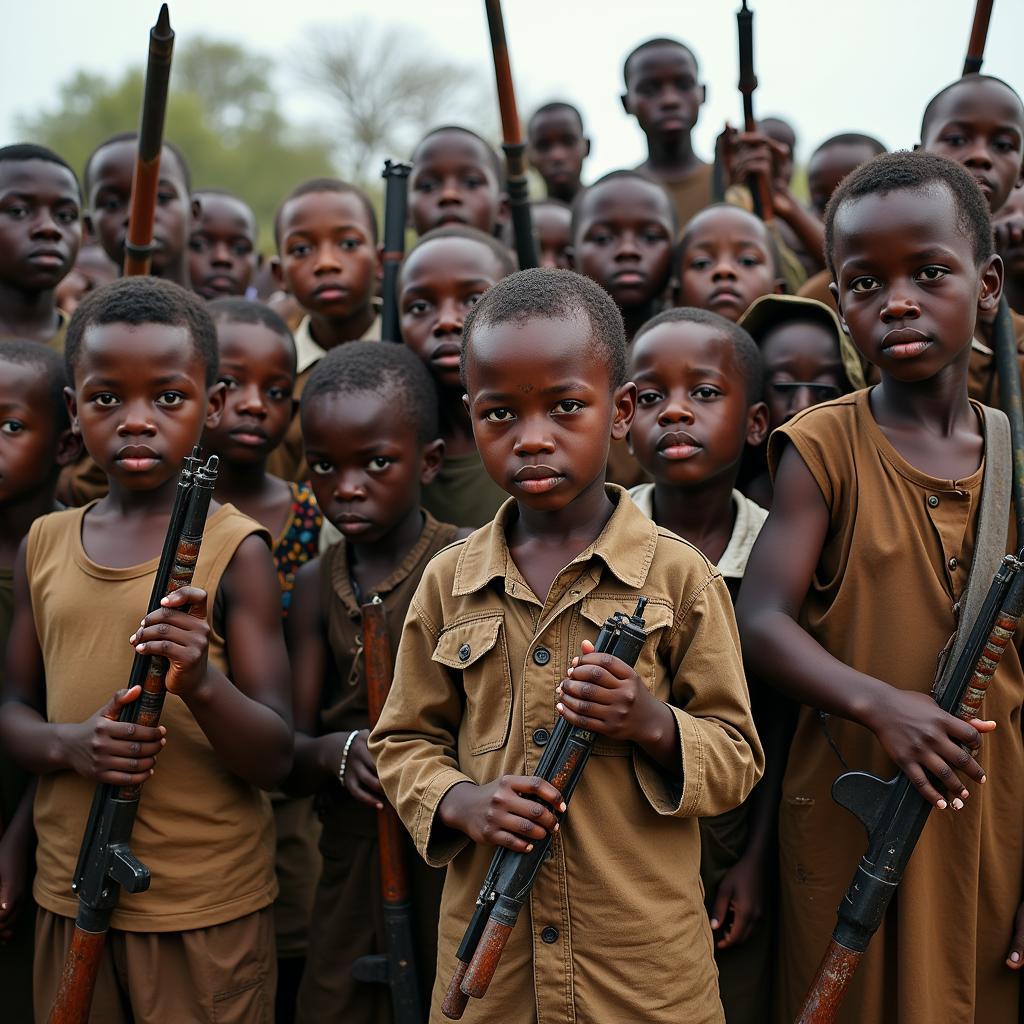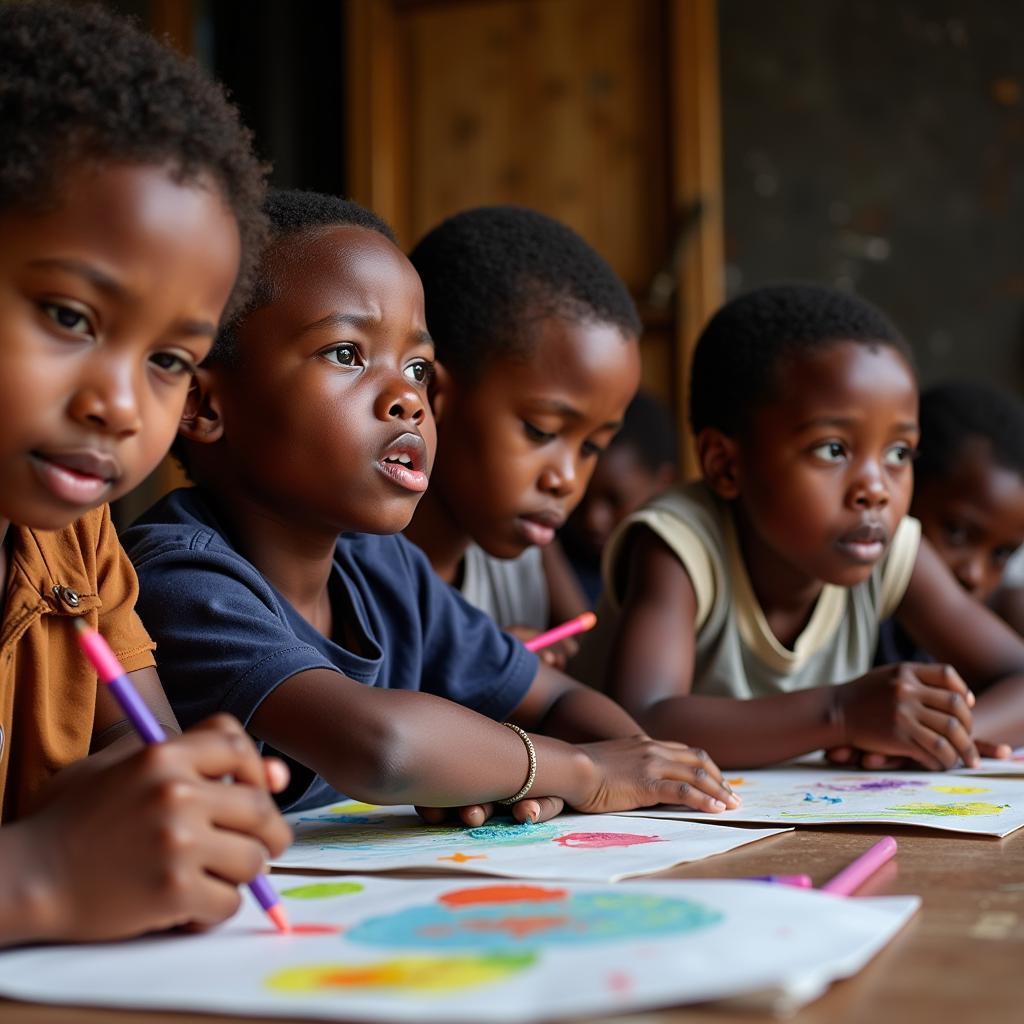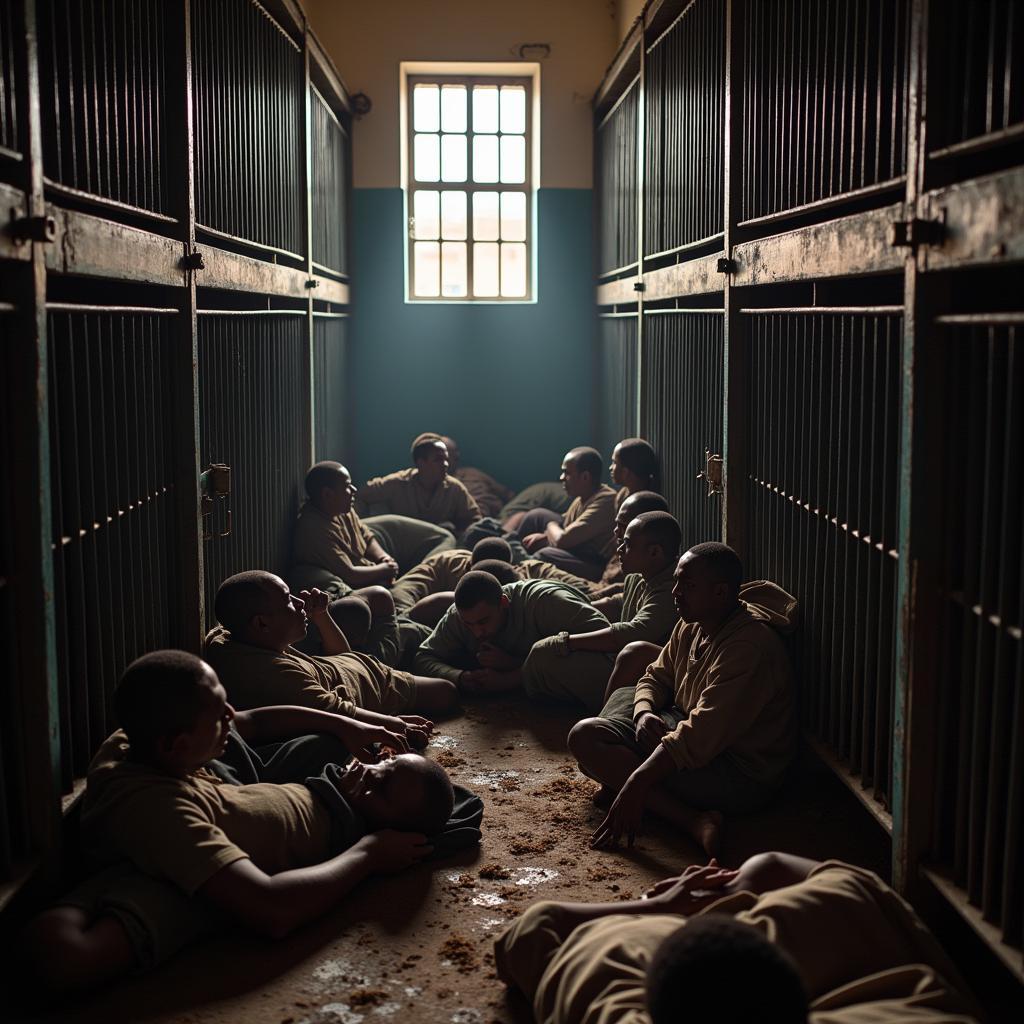The Plight of African Child Soldiers: Understanding the Kony Legacy
The issue of African child soldiers casts a dark shadow over the continent, and the name Joseph Kony and his Lord’s Resistance Army (LRA) remains synonymous with the horrors inflicted upon these young lives. Kony’s reign of terror, spanning decades, has left an indelible mark on regions of Central Africa, highlighting the complex and heartbreaking reality of child soldiery.
The Rise and Reign of Terror: Joseph Kony and the LRA
Emerging in the late 1980s, the LRA, led by the self-proclaimed prophet Joseph Kony, initially presented itself as a fighting force aiming to overthrow the Ugandan government. However, the group’s agenda quickly devolved into a campaign of brutality, characterized by mass killings, abductions, and the widespread use of child soldiers.
 Child soldiers associated with Joseph Kony's LRA
Child soldiers associated with Joseph Kony's LRA
Kony, employing a potent blend of religious fundamentalism, mystical pronouncements, and sheer terror, instilled fear and obedience within the LRA’s ranks. Children, often abducted from their villages in the dead of night, became both victims and perpetrators of the LRA’s violence.
The Making of a Child Soldier: Abduction, Indoctrination, and Abuse
Children, particularly those between the ages of 6 and 12, were prized by the LRA. They were seen as more malleable, easier to control, and less likely to attempt escape compared to adult recruits. The methods used to abduct and indoctrinate these children were ruthlessly effective.
Upon abduction, children were subjected to a brutal initiation process designed to sever ties with their former lives and instill unwavering loyalty to Kony. This often involved being forced to commit atrocities, including killing their own family members or friends. This tactic not only instilled terror but also created a sense of shared guilt and complicity, making it harder for the children to escape or betray the group.
Beyond the Battlefield: The Long-Term Impacts of Child Soldiery
The impact of child soldiery extends far beyond the battlefield. The trauma of experiencing or witnessing violence, coupled with the loss of their childhood, education, and family, leaves lasting psychological scars.
“The children who manage to escape or are released from these armed groups are often deeply traumatized. They’ve witnessed and experienced things no child ever should. The road to healing and reintegration is long and challenging,” says Dr. Aminah Kande, a psychologist specializing in the rehabilitation of former child soldiers in Uganda.
 Reintegration and healing for former child soldiers
Reintegration and healing for former child soldiers
Moving Forward: Justice, Rehabilitation, and Prevention
While Kony’s reign of terror has diminished, the legacy of the LRA and the broader issue of child soldiery continues to plague parts of Africa. Addressing this complex issue requires a multi-pronged approach, focusing on justice, rehabilitation, and prevention.
Bringing perpetrators like Kony to justice remains crucial for deterring future atrocities and providing a sense of closure for victims. However, rehabilitation efforts for former child soldiers are equally vital. Providing psychological support, education, and vocational training can empower these young survivors to rebuild their lives and contribute positively to their communities.
Ultimately, preventing child soldiery demands tackling its root causes: poverty, lack of education, and ongoing conflicts. By addressing these systemic issues, we can create a safer and more hopeful future for the children of Africa, ensuring that they are students in classrooms, not soldiers on battlefields.

